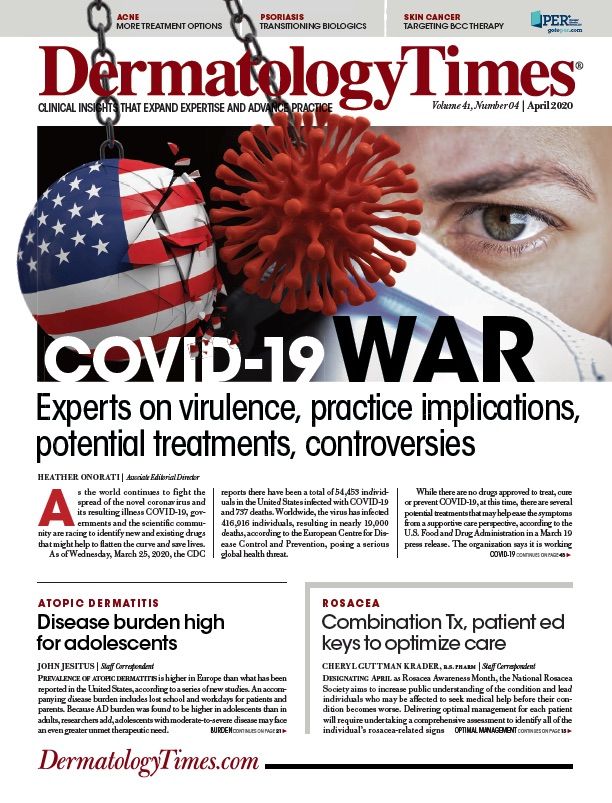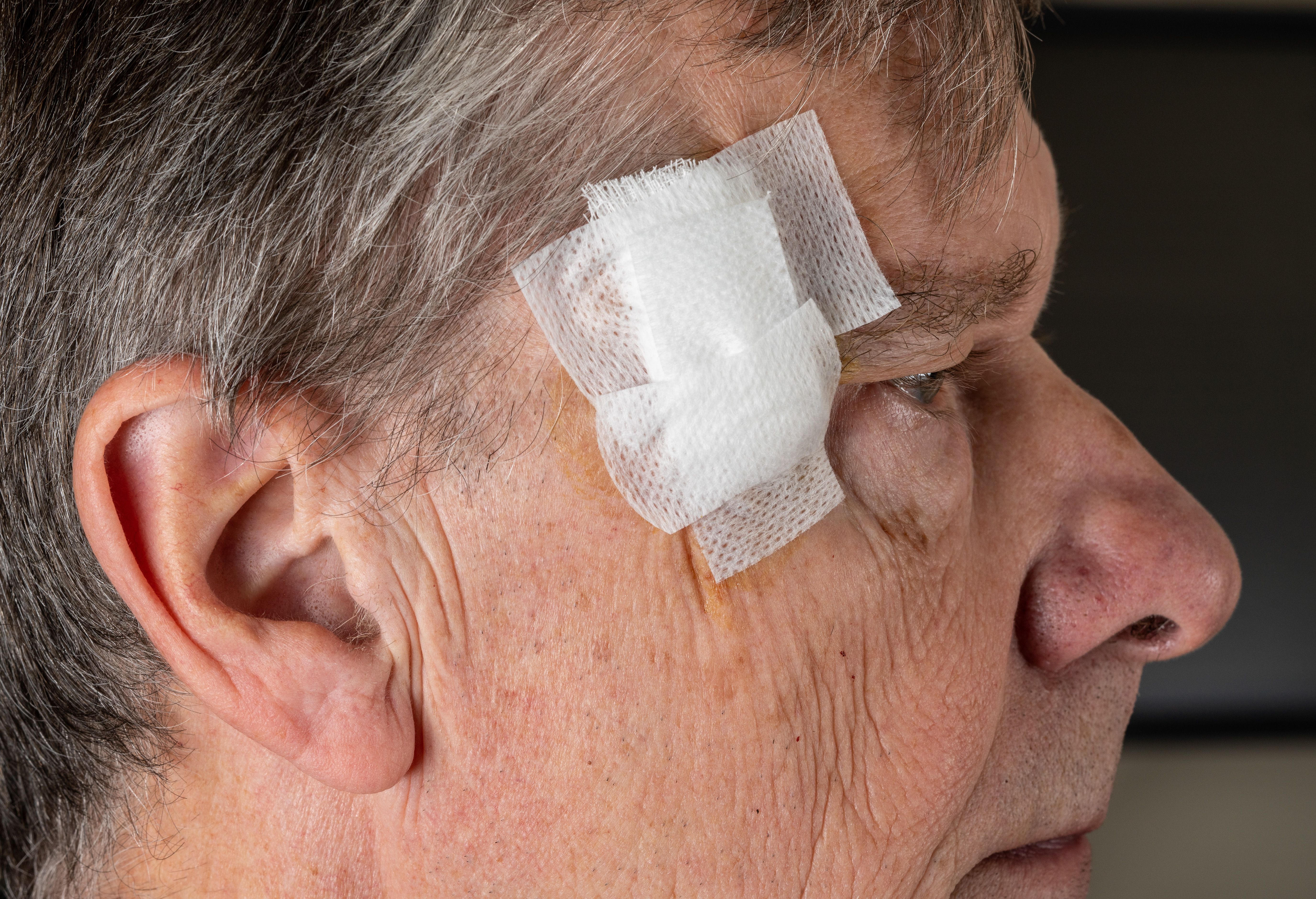- Case-Based Roundtable
- General Dermatology
- Eczema
- Chronic Hand Eczema
- Alopecia
- Aesthetics
- Vitiligo
- COVID-19
- Actinic Keratosis
- Precision Medicine and Biologics
- Rare Disease
- Wound Care
- Rosacea
- Psoriasis
- Psoriatic Arthritis
- Atopic Dermatitis
- Melasma
- NP and PA
- Skin Cancer
- Hidradenitis Suppurativa
- Drug Watch
- Pigmentary Disorders
- Acne
- Pediatric Dermatology
- Practice Management
- Prurigo Nodularis
- Buy-and-Bill
Publication
Article
Dermatology Times
A paradigm shift in squamous cell carcinoma treatment
Author(s):
Recent advances in systemic therapies have led to the development of PD-1 checkpoint inhibitors, which one expert says may represent a paradigm shift in the treatment and management of patients with locally advanced or metastatic cutaneous squamous cell carcinoma (SCC).

Dr. Schlesinger

Recent advances in systemic therapies have led to the development of PD-1 checkpoint inhibitors, which one expert says may represent a paradigm shift in the treatment and management of patients with locally advanced or metastatic cutaneous squamous cell carcinoma (SCC), and particularly for metastatic SCC tumors that may not be amenable to surgical resection or radiation therapy.
RELATED: Systemic option for squamous cell carcinoma
“The increasing numbers of SCC that are found in our population especially in fair skinned and older patients are typically addressed with some form of surgery and/or other treatment modalities. When these tumors become more advanced however, that’s when you have to think about other treatments such as the check point inhibitors, among other therapies,” says Todd E. Schlesinger, M.D., FAAD, medical director, Dermatology & Laser Center and Clinical Research Center of the Carolinas, Charleston, S.C., who recently delivered a CME presentation during the Maui Derm for Dermatologists meeting, Maui, Hawaii.
Recently, the FDA approved cemiplimab (Libtayo, Regeneron and Sanofy Genzyme) for the treatment of cutaneous locally advanced and metastatic SCC. In the combined phase 1/2 clinical trial data, the monoclonal antibody achieved an overall response rate of approximately 50% of patients as well as a durable response exceeding six months in 57% of responders.
According to Dr. Schlesinger, the response with cemiplimab is a remarkable improvement from the outcomes achieved with previously used approaches with higher toxicities, which historically have demonstrated only a 15% to 35% overall patient response rate.
Advanced SCC is thought to be particularly responsive to immunotherapy because the disease risk is strongly associated with immunosuppression and it has a very high tumor mutational burden, which is five times that of lung cancer and over four times that of melanoma.
The accumulation of mutations in SCC and other changes in the cells make them highly targeted by the immune system, says Dr. Schlesinger, which would explain why SCC is more commonly found in immunosuppressed individuals like organ transplant recipients (OTRs), and occurs more frequently than melanoma and basal cell carcinoma (BCC) in this patient population.
RELATED: Diet may impact squamous cell carcinoma risk
The complex interplay between SCC tumors and the immune system leads to their pathogenesis and, in response, the body develops ways to initiate immune surveillance to try to keep these mutations and the tumors under control. According to Dr. Schlesinger, immune surveillance plays a key role in addressing the tumors and keeping them at bay.
“That is the whole point of checkpoint inhibition, where the PD-1 inhibitors block that interaction between the T-cell and tumor cell. This basically ‘uncloaks’ the tumor cells and creates a reaction that causes the tumor cells to be destroyed via the CD8+ T-cell pathway,” Dr. Schlesinger said.
Certainly, the checkpoint inhibitors are fraught with adverse events (AE) that are primarily related to immune system activation that can a ect any organ system. However, Dr. Schlesinger says there is a general sense among clinicians and their patients that AEs - even those that are severe - are low compared with those from other therapies. Most of the AEs do not require treatment interruption and can be managed by the treating physician. As such, the potential benefit that patients can receive from this medication oftentimes outweighs the adverse events that the patients may have.
Past and current trials with PD-1 inhibitors for the treatment of advanced SCC were conducted in generally healthy individuals and, as such, Dr. Schlesinger says that caution is warranted when considering PD-1 therapy in OTRs and otherwise immunosuppressed patients or those with significant comorbidities.
At present, adjuvant radiation therapy may be considered for advanced SCC if surgical therapy is not feasible or preferred. However, the precise role of radiation therapy is still to be elucidated, especially when using it in combination with checkpoint inhibition. According to Dr. Schlesinger, salvage radiation therapy (SRT) seems to be falling out of favor recently for some cases as recent data indicates that its implementation may lead to a worse prognosis.
RELATED: Genetic expression profiling for squamous cell carcinoma
“The immune checkpoint inhibitors are a new paradigm for the treatment of advanced SCC. Ongoing clinical trials will help elucidate the therapeutic bene t of cemiplimab as well as other PD-1 agents currently under investigation,” Dr. Schlesinger says.
Disclosures:
Dr. Schlesinger is a consultant and clinical investigator for both Regeneron and Sanofi, and he is in the speaker bureau for the Regeneron/Sanofi alliance.






